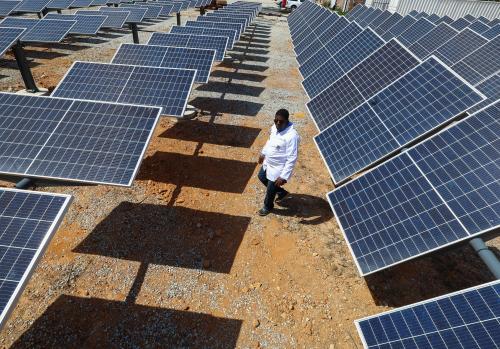

12:00 pm EDT - 1:15 pm EDT
Past Event
Around the world, developing markets are facing a daunting challenge: how to strengthen their economies to improve the lives and livelihoods of citizens while not relying on high-carbon avenues for growth which have been deployed for generations. In many ways, the future of climate action relies on the decisions made in these emerging markets, and additional fiscal pressure brought about by the pandemic has made investing in necessary energy transformations to create sustainable, long-term growth even more difficult. A new report from the International Energy Agency (IEA), in collaboration with the World Bank and the World Economic Forum, outlines a plan for mobilizing and prioritizing clean energy investments in these economies.
The report, “Financing clean energy transitions in emerging and developing economies,” includes almost 50 case studies from clean energy projects around the world and recommended actions that governments, financial institutions, investors, and companies can take in order to overcome shared challenges.
On Monday, June 21, the Brookings Initiative on Climate Research and Action convened an event to discuss the IEA report and the obstacles to mobilizing and deploying finance for clean energy transitions. The event began with remarks from the executive director of the IEA, Fatih Birol, followed by a presentation of the report’s findings and commentary from a panel of experts.
Viewers submitted questions via email to [email protected] or via Twitter using #EnergyTransitions.


Moderator

Panelist

Vera Songwe, Landry Signé
September 18, 2024

Paul Muthaura, Oliver Glanvile
July 26, 2024

Homi Kharas, Charlotte Rivard
April 16, 2024